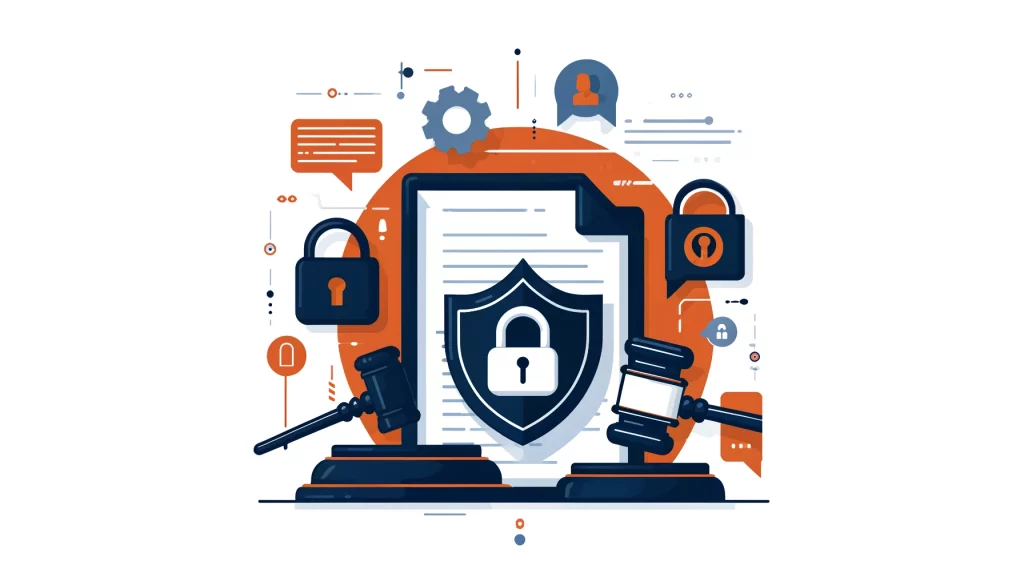
Data Privacy Compliance

In today’s digital age, data privacy compliance has become a crucial aspect of running a successful business. Companies must prioritize data protection to avoid fines and damage to reputation. Failure to do so can have serious consequences.
This article will explain why data privacy compliance is important. Also, it will give you practical steps to make sure your organization follows the rules.
The Importance of Data Privacy Compliance
Data privacy compliance is not just a legal requirement; it’s a competitive advantage. Customers trust businesses that prioritize the security of their personal information.
Prioritizing data protection helps you build strong relationships with clients. It also sets you apart from competitors who do not prioritize data privacy. This can give you a competitive edge in the market.
Understanding Data Privacy Regulations
To ensure data privacy compliance, you must first understand the regulations that apply to your business. Some of the most well-known data protection laws include:
The GDPR is a set of strict guidelines created by the EU. These guidelines are for businesses that handle the personal data of EU citizens.
Health Insurance Portability and Accountability Act (HIPAA): U.S. healthcare organizations must adhere to HIPAA to protect patient information.
Payment Card Industry Data Security Standard (PCI DSS)
Companies that process credit card transactions must comply with PCI DSS to ensure the security of cardholder data.
The first step to achieving data privacy compliance is to understand the regulations that apply to your industry.
Identifying Your Data
To protect your data effectively, you need to know what types of information your business collects, stores, and processes. This includes customer names, addresses, social security numbers, and financial information. Identify the data you own to understand which data privacy regulations apply to your organization. Take necessary steps to secure sensitive information.
For example, if your company handles credit card transactions, you must comply with PCI DSS. This means implementing strict security measures, such as encrypting cardholder data and regularly monitoring your network for vulnerabilities.
Developing a Data Compliance Strategy
Understanding the data privacy regulations that apply to your business is important. You should also identify the types of data you have. After that, you need to develop a comprehensive data compliance strategy. This strategy should outline the steps your organization will take to ensure ongoing compliance with relevant regulations.
Your data compliance strategy may include:
- Implementing access controls to prevent unauthorized access to sensitive data.
- Regularly training employees on data privacy best practices.
- Conducting routine data assessments to identify and address potential vulnerabilities.
- Collaborating with third-party data security platforms to enhance your data protection capabilities.
Creating and following a strong data compliance strategy is important. This helps reduce the risk of data breaches. It also shows your dedication to safeguarding customer information.
The Consequences of Non-Compliance
Failing to comply with data privacy regulations can result in severe consequences for your business. Depending on the severity of the violation, you may face hefty fines, legal action, and damage to your reputation.
Regulators have the authority to fine companies for serious breaches under GDPR. The fines can be up to 4% of the company’s yearly global revenue or €20 million. The fine will be whichever amount is greater.
Breaking HIPAA rules can result in fines of up to $1.5 million per year. Not following PCI DSS guidelines can lead to penalties of up to $100,000 each month.
Beyond financial penalties, data privacy breaches can erode customer trust and harm your brand’s reputation. If there is a breach, you may lose customers. You may also receive bad publicity. It could be difficult to regain the trust of your intended audience.
Conclusion
In today’s data-driven world, prioritizing data privacy compliance is no longer optional for businesses. To succeed in the digital age, it is important to protect your data.
You should also know the rules and understand your data. Creating a compliance plan is essential. Additionally, be aware of the risks of not following the rules.
Investing in data privacy compliance is important for more than just avoiding penalties. Building trust with customers is important to create a strong and sustainable business. This will help the business effectively navigate cyber threats and changing regulations.
Trust is a key factor in establishing long-term relationships with customers. By prioritizing trust, businesses can better adapt to challenges and changes in the market.
Are you ready to take your organization’s data privacy compliance to the next level? Don’t miss our upcoming demo session. You can discover how DataSunrise helps you comply with regulations like GDPR and HIPAA.
Oversee sensitive data with our platform. Our experts can assist you with using the platform. They will show you the benefits of using our platform for data security. You will learn how to effectively find, protect, and manage your sensitive data with our help.
